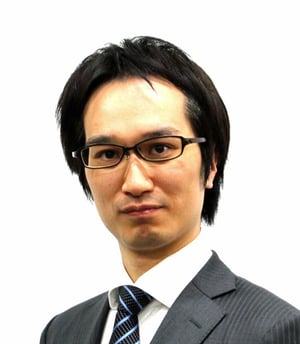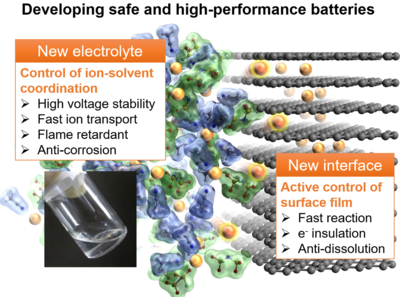Young Faculty / 042
Associate Professor Yuki Yamada , Yamada-Okubo-Yamada lab, Department of Chemical System Engineering

<Biography>
2006.3 B.S., Faculty of Engineering, Kyoto University
2008.3 M.S., Graduate School of Engineering, Kyoto University
2010.9 Ph.D., Graduate School of Engineering, Kyoto University
2010.10 Assistant Professor, Department of Chemical System Engineering, School of Engineering, The University of Tokyo
2018.4 Lecturer, Department of Chemical System Engineering, School of Engineering, The University of Tokyo
2020.4 Associate Professor, Department of Chemical System Engineering, School of Engineering, The University of Tokyo
<About the Research>
Rechargeable batteries, which can store electricity and discharge it whenever needed, have become an indispensable device in our daily lives for applications such as smartphones and laptop computers. Recently, the demand for high-performance and high-safety rechargeable batteries has been increasing for electric vehicles and power storage applications, and they are attracting attention as an essential technology to realize a low-carbon society.
We are developing new materials and reactions for advanced lithium-ion batteries and post-lithium-ion new batteries. Particularly, we focus on an electrolyte, which transports ions between positive and negative electrodes. We control ion-molecule coordination states in a liquid phase to develop unique properties and functions that are not found for conventional electrolyte materials. We are also exploring the possibilities of various new rechargeable batteries based on the new functions and properties we have discovered. For example, we have developed high-voltage batteries (4.7 V vs. 3.8 V for commercial Li-ion batteries) by enhancing the voltage resistance of the electrolyte, quick-charge batteries using a unique electrode/electrolyte interface, non-flammable lithium-ion batteries using a flame-retardant and even fire-extinguishing organic electrolyte, and new water-based high-voltage batteries by stabilizing water from electrolysis. We will continue to explore unknown properties and functions of electrolyte materials and develop new rechargeable batteries that will solve environmental and energy issues.
[References]
Y. Yamada et al., J. Am. Chem. Soc., 136, 5039 (2014).
Y. Yamada et al., Nat. Energy, 1, 16129 (2016).J. Wang and
Y. Yamada et al., Nat. Energy, 3, 22 (2018).
Y. Yamada et al., Nat. Energy, 4, 269 (2019).
Q. Zheng and Y. Yamada et al., Nat. Energy, 5, 291 (2020)
<Future aspirations>
We will take novel approaches to challenge the development of new rechargeable batteries that will have a major impact on the world
<WEB>
Lab HP : http://www.yamada-lab.t.u-tokyo.ac.jp/en/
Press release : http://www.t.u-tokyo.ac.jp/foee/press/setnws_202003031021582493233056.html
You May Also Like
These Related Stories

